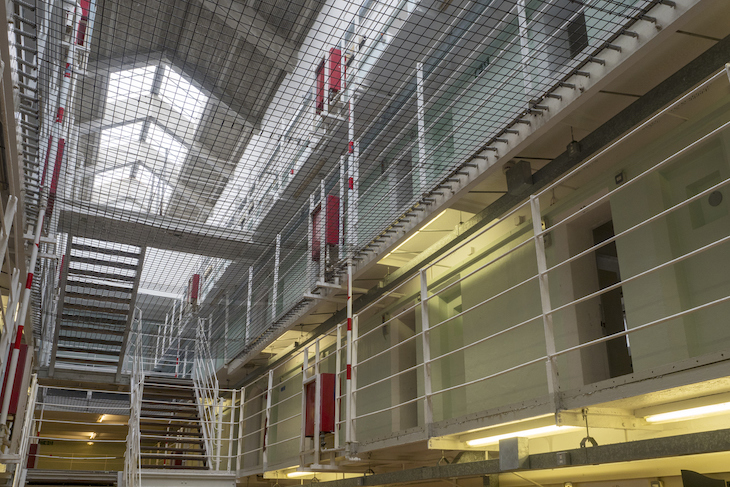It’s finally happened. Our prisons are almost full. Last night the Times reported that ‘Lord Justice Edis, the senior presiding judge for England and Wales, has ordered that sentencing of convicted criminals who are currently on bail should be delayed from Monday’. Prisons in England and Wales are now unable to find cell space for every criminal that judges believe should be jailed.
This means that next week people convicted of very serious crimes, including historic sex offences, may be found guilty then sent home on bail. Beyond the obvious public protection concerns this delay to justice will further traumatise victims, and reduce confidence in the whole system.
Anyone could have predicted this crisis. Last November, Damien Hinds, the prisons minister, activated Operation Safeguard – which makes police cells available to house prisoners for a maximum of one night if no prison cell is available. It is still in use.
Our courts system is crumbling
In March this year judges were urged to sentence more leniently in light of prison overcrowding. In May, Andrea Albutt, president of the Prison Governors’ Association, warned of a ‘capacity crisis’. Then the Chief Inspector of Prisons wrote about a prison population ‘crisis’ in August.
The numbers make the problem clear. Over the last year the government has created about 90new prison places per week by making two prisoners share a single person cell, delaying maintenance work, transferring low risk prisoners to open conditions, deploying temporary prison cells, and opening new prisons (once they overcome local planning processes). However, each week up to 200 new prisoners enter the system.
The Ministry of Justice blames a ‘higher than usual number of offenders coming into prison this year’. Again though, this rise should have been expected. The 2019 Conservative manifesto promised 20,000 additional police officers, and in April of this year the PM announced that this had been achieved. It doesn’t seem surprising that 20,000 more police officers might result in more arrests, but the rest of the system seems entirely unprepared.
Similarly, in 2020 the government announced that violent and sexual offenders would spend longer in prison. While protecting the public in this way is popular, the result is further strain on our limited prison capacity.
Our courts system is crumbling figuratively and literally and this creates further pressure. Before the pandemic the number of remand prisoners (those awaiting trial or sentencing) was around 9,500. During lockdown, with the courts disrupted, that number rose to around 13,000. While barristers were on strike in 2022 it rose to 15,500. By the end of June this year 15,500 prison spaces were occupied by remand prisoners.
In the long-term we need to make prison work, reducing our high reoffending rate so that someone returning to prison become rare. But that work will take years. Right now the government needs to free up capacity in the prison system. This means looking at who can be released early. Home Detention Curfew, or ‘tagging’ allows low-risk, non-violent prisoners who have displayed good behaviour during their sentence to spend the final months before their conditional release date on curfew at their own homes. At present curfew is only available in the last 180 days of someone’s sentence. Increasing this period to nine months, or even 12, would free up a substantial number of open prison spaces. As a result, lower risk prisoners would transfer to open prisons, creating capacity throughout the system.
Another option is to adjust sentencing policy, avoiding the use of very short sentences of a few days or months. Much of the public may find this unpalatable if the result is prolific offenders being spared prison.
In the same way we struggle to build rail and power capacity it seems we can no longer plan and create enough prison infrastructure. Politicians enact popular, aspirational policies, putting more police on the streets and jailing dangerous criminals for longer, when there’s no serious chance of the prison system achieving the necessary capacity. It all feels emblematic of a government and state that has lost its ability to plan or function.






Comments